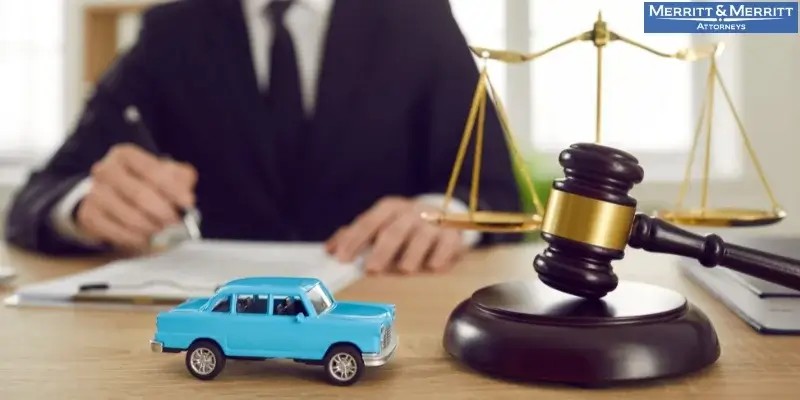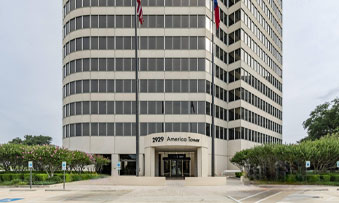Georgia Car Accident Laws – All You Need to Know

Getting into a car accident is incredibly stressful. There are many factors to consider in the aftermath of a collision, so it’s important to understand Georgia car accident laws. Knowing your rights and what steps to take following a collision can give you peace of mind as you pursue compensation for damages caused.
Driver Responsibility After an Accident
Immediately following an accident, turn on your hazard lights and pull your vehicle to the side of the road, if possible. Call the police, especially if there are any injuries or significant property damages. A police officer will write up an official accident report which will be necessary for insurance claims and determining the at-fault party.
Be sure to exchange detailed personal contact and insurance information with those involved. Then, begin safely assessing the scene. Taking pictures can help insurance companies and authorities determine fault and provide evidence if a lawsuit becomes necessary.
Determining Fault
Do not admit fault at an accident scene. Let the police consider all factors on their own. Even hinting that you might have been at fault can make you legally obligated to pay restitution. Authorities take various factors into consideration when determining fault. These include:
- Driver behavior
- Traffic law violations
- Seat belt usage
- Impaired or distracted driving
- Witness statements
- Weather and road conditions
- Vehicle defects
The driver determined to be at fault in an accident must pay for damages to the injured party. These can include medical bills, car repairs or replacement, and pain and suffering incurred as a result of the accident. In some cases, comparative fault could place responsibility on both parties.
What Is Comparative Fault?
Comparative fault places accident responsibility on more than one person involved in an accident. When responsibility falls between various offenders, this helps determine how much each party must pay in damages.
Georgia follows a modified comparative negligence system, meaning that an injured party can receive compensation if their portion of fault is less than 50%. The compensation received would be reduced by their percentage of fault. For example, if the court awards $100,000 in damages, but the plaintiff is 20% responsible, the plaintiff would only receive $80,000 in compensation.
Statute of Limitations
Georgia car accident laws require that personal injury cases must be filed within two years of the accident date. Even if you have a strong case, missing this deadline could result in case dismissal.
However, there are exceptions to this rule in certain circumstances, including cases where:
- The victim is a minor
- The case includes fraud
- There is an ongoing criminal investigation
- The victim has a mental disability
If fault falls on the manufacturer of the automobile, the two-year statute of limitations still applies, unless the case involves strict liability on the manufacturer. In this case, a lawsuit may be filed up to ten years after the first purchase of the vehicle.
When the lawsuit involves the city rather than an individual, the statute of limitations is even smaller, at only six months.
Filing as soon as possible after the accident gives you a better chance of going to court and gaining the settlement you desire. If you spend too much time negotiating with the insurance companies before filing, you may lose your chance to have your case seen before a judge.
Georgia Car Accident Law FAQs
Q: What Is Georgia’s Law on Auto Accidents?
A: Because Georgia is an at-fault state, the driver responsible for the accident is legally obligated to compensate the victim for damages, including medical bills, property damage, and pain and suffering. All drivers must carry liability insurance. Minimum coverage amounts include bodily injury liability at $25,000 per individual and $50,000 per accident and property damage liability of $25,000 per accident.
Q: How Is Fault Determined in a Car Accident in Georgia?
A: When assessing an accident scene in Georgia, authorities will take testimony statements from involved drivers and witnesses of the accident. Negligence plays a crucial part in determining fault, including driver impairment and distraction, as well as environmental considerations, such as weather and road conditions at the time of the accident. The police report helps insurance companies determine the party responsible for settlement payout.
Q: Do You Have to Call the Police After a Minor Car Accident in Georgia?
A: You are legally obligated to call the police after an accident that results in any injury, no matter how minor, and in cases where the total property damages exceed $500. If there is any question regarding injuries, damages, or fault, make sure to get a police report. This evidence could play a part in possible legal proceedings or in helping insurance companies determine responsibility.
Q: What Happens After a Car Accident That Is Not Your Fault in Georgia?
A: If the police report determines you were not at fault in a car accident, you are entitled to recover compensation for your injuries, damages to your vehicle, any lost wages, and pain and suffering. You do not need to file with your own insurance company, as the at-fault driver’s insurance company must assume responsibility for your compensation. A lawyer with knowledge of Georgia car accident laws can help you determine the next steps in obtaining what you are owed.
Q: Should You Get a Lawyer If the Accident Is Your Fault in Georgia?
A: If you are determined to be at fault for a car accident, your insurance company must pay out damages to the victim, up to the amount on your insurance policy. If this total exceeds the limits set by your insurance company, you will be financially responsible for paying the rest. By working with a Georgia car accident lawyer, you can dispute unfounded claims, protect your rights, and receive guidance on how to minimize your financial liability
Speak With a Qualified Georgia Car Accident Lawyer Today
If you’ve been involved in a car accident, it is important that you work with an experienced attorney who can ensure you receive the full extent of the compensation you deserve. At Merritt & Merritt Law Firm, our attorneys have comprehensive knowledge of how fault is determined, what kinds of damages you are owed, and how to present strong evidence when making your case.
We can negotiate with insurance companies on your behalf or represent you in court. Contact our office today for a consultation and to discuss the details of your case.






